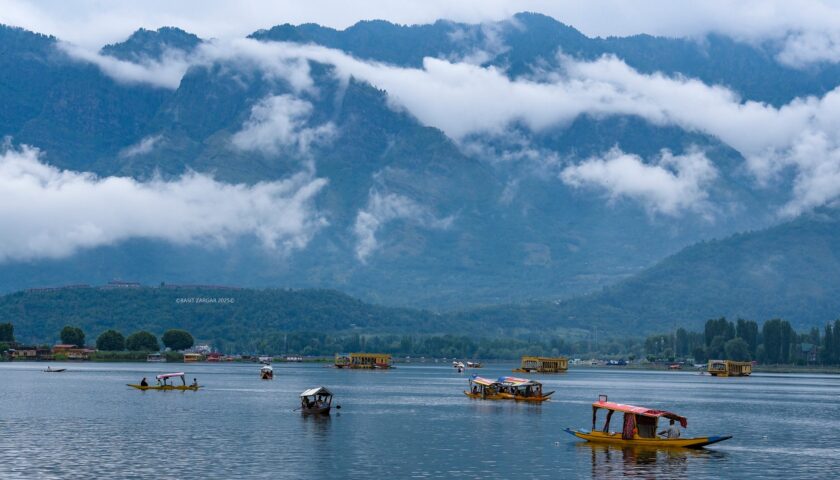Prioritizing Social Issues in Kashmir: A Call for Development, Empowerment, and Community Engagem
By: Javid Amin
Kashmir, known for its scenic beauty and rich cultural heritage, is currently grappling with a range of social issues that require urgent attention. While the construction of mosques and social media donation calls have become prominent, it is essential to prioritize addressing core social issues that impact the lives of the people. This article delves into some of the pressing social problems in Kashmir, such as drug addiction, flesh trade, and the need for community involvement in uplifting the underprivileged sections of society.
Drug Addiction:
One of the major challenges facing Kashmir is the alarming rise in drug addiction. Substance abuse has been devastating communities, destroying lives, and creating a vicious cycle of dependency. The government and civil society must work together to address the root causes of drug addiction, such as unemployment, lack of education and awareness, and easy access to drugs. Effective rehabilitation programs, educational initiatives, and counseling services should be established to provide support and treatment for those struggling with addiction.
Flush Trade:
Another concerning issue is the prevalence of the flesh trade in Kashmir. This illicit industry exploits vulnerable individuals, particularly women and children, and poses a grave threat to their safety and well-being. Law enforcement agencies need to take decisive action to dismantle such networks and hold perpetrators accountable. Simultaneously, social awareness campaigns and community programs should be initiated to educate people about the dangers and consequences of engaging in or supporting the flesh trade.
Social Media Donation Calls:
While social media has become a powerful tool for raising awareness and mobilizing support, it is important to exercise caution and verify the authenticity of donation calls. The proliferation of false appeals for financial assistance raises concerns about accountability and transparency. It is crucial to establish mechanisms to ensure that genuine causes receive the necessary support while preventing fraudulent activities. Government bodies and reputable NGOs should play a role in regulating and validating donation requests to ensure that resources reach those who genuinely require assistance.
Prioritizing Societal Development:
As a society, our primary responsibility should be the holistic development of our communities. This involves actively addressing issues within our neighborhoods, extending a helping hand to the underprivileged, and supporting initiatives that improve the quality of life for all residents. Financial aid for education, healthcare, and marriage assistance programs can be established to uplift the downtrodden and marginalized sections of society. By prioritizing these aspects, we can foster an environment of inclusivity and social progress.
Furthermore, it is crucial to address the growing social issues that are affecting the young generation in Kashmir. The rise in drug addiction, incidents of road rage, stabbings, and gang-related violence are alarming trends that require immediate attention. It is the collective responsibility of parents, guardians, teachers, and society as a whole to take proactive measures in teaching and instilling core values in the younger generation.
Education plays a vital role in shaping the minds of the youth and fostering a sense of responsibility and moral values. Parents and guardians should actively engage with their children, providing guidance, support, and setting positive examples. Open and honest communication about the consequences of engaging in illegal activities, the dangers of substance abuse, and the importance of respect for oneself and others can go a long way in preventing such social evils.
Teachers also play a crucial role in shaping the character and values of students. Alongside academic education, teachers should impart life skills, moral education, and lessons on empathy, tolerance, and peaceful coexistence. By creating a conducive learning environment that promotes mutual respect, understanding, and ethical behavior, teachers can contribute significantly to the overall development of the students.
In addition to the efforts of parents and teachers, it is essential for the larger society to come together and create a support system for the young generation. Community-based organizations, NGOs, and local authorities can collaborate to provide counseling services, rehabilitation programs, and recreational activities that divert the youth’s attention away from negative influences. By offering alternative avenues for personal growth and development, we can help steer the younger generation towards a path of positivity, productivity, and responsible citizenship.
It is important to recognize that tackling social issues requires a multi-faceted approach involving education, awareness, support systems, and active involvement from all stakeholders. By prioritizing the well-being and development of the young generation, we can collectively work towards creating a safer, more prosperous, and harmonious society in Kashmir.
Additionally, the role of education and empowering the youth cannot be understated in addressing the social issues prevalent in Kashmir. Access to quality education is key to equipping young individuals with the necessary knowledge, skills, and critical thinking abilities to make informed choices and contribute positively to society.
Furthermore, it is important to address the issue of daily calls for crowdfunding and donation requests that flood social media platforms. While some of these appeals may be genuine, there is also a need to exercise caution and verify the authenticity of such requests. Establishing mechanisms to regulate and monitor crowdfunding campaigns can help distinguish between genuine causes and fraudulent activities. This can be achieved through collaboration between government bodies, social media platforms, and relevant authorities to ensure transparency and accountability.
As a society, it is imperative to prioritize the welfare of our fellow citizens and focus on addressing the immediate needs of the underprivileged. This includes providing assistance to those who require financial support, aid in arranging marriages, or any other form of necessary assistance. By channeling our resources towards uplifting the disadvantaged and ensuring their basic needs are met, we can create a more equitable and compassionate society.
Building mosques and religious structures should be considered within the broader context of societal development and addressing social issues. While religious institutions hold significance in promoting spirituality and fostering community cohesion, it is essential to strike a balance between religious practices and the pressing needs of the community.
By shifting our focus towards the welfare and development of the entire society, we can create a strong foundation that allows individuals to thrive and contribute positively. This involves prioritizing the well-being of the youth, investing in education and skill development programs, and providing avenues for their active participation in shaping the society they live in. When the youth are given opportunities to learn, grow, and engage in constructive activities, they are less likely to fall victim to social evils.
In conclusion, addressing social issues in Kashmir requires a holistic approach that includes education, empowerment of the youth, and a collective effort to verify donation requests and crowdfunding appeals. By focusing on education, fostering empathy, and prioritizing the needs of the underprivileged, we can create a society where everyone has equal opportunities and access to essential resources. Let us work together to build a compassionate, inclusive, and prosperous Kashmir for generations to come.




